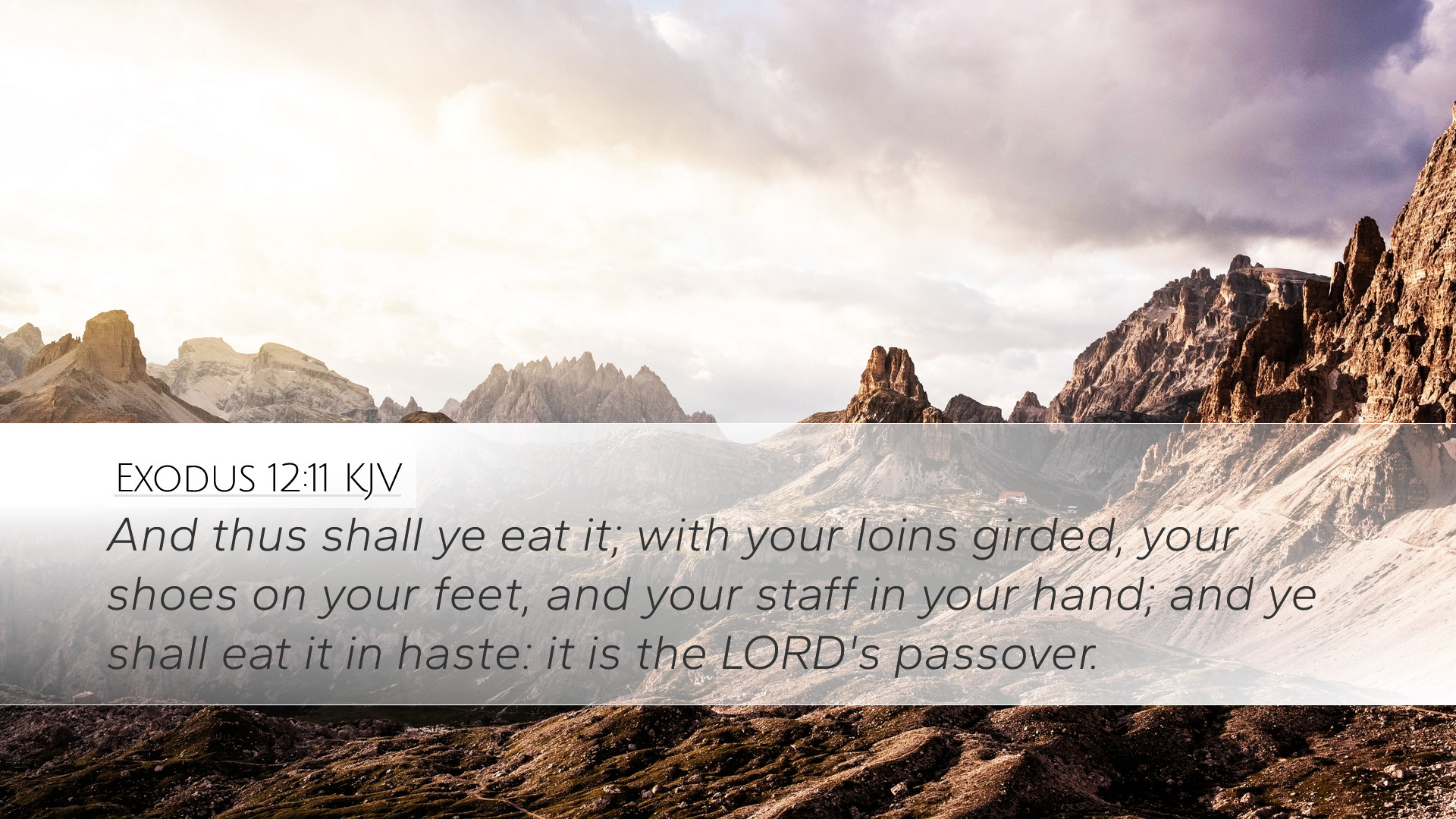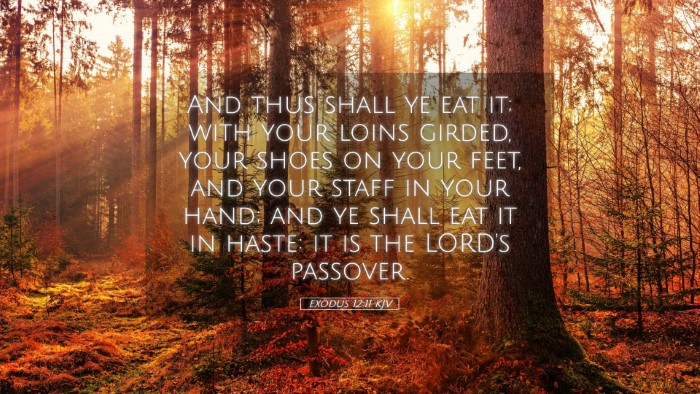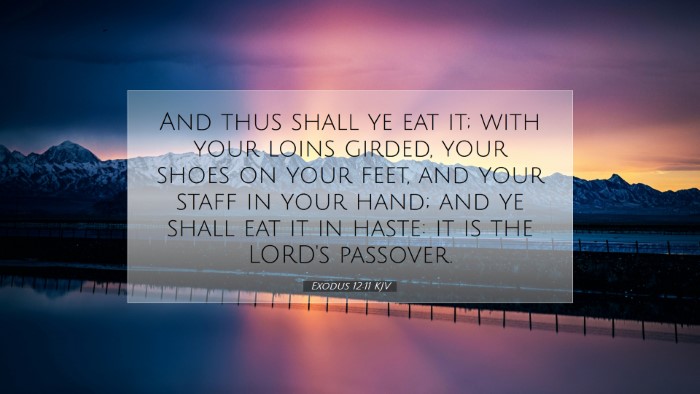Exodus 12:11 - Summary of Commentary
Verse: "And thus shall ye eat it; with your loins girded, your shoes on your feet, and your staff in your hand: and ye shall eat it in haste: it is the Lord's passover."
Contextual Significance
This verse is part of the broader narrative of the Passover, a pivotal event in Israel's history that marks their liberation from Egyptian bondage. It serves not only as a historical account but also as a theological teaching point for understanding God's deliverance.
Interpretative Insights
The instruction given in Exodus 12:11 carries profound implications for the people of Israel and serves as a model for understanding readiness and obedience in spiritual matters.
Readiness and Vigilance
Matthew Henry emphasizes that the directive to eat the Passover meal with loins girded and shoes on their feet symbolizes a state of readiness. This physical preparation reflects a spiritual attitude; God's people must be prepared to move when called. This conveys the urgency in God's deliverance.
- Loins girded: A sign of readiness, as the Israelites are to be in a state of alertness—ready to leave Egypt at a moment's notice.
- Shoes on your feet: Indicates they are prepared for the journey ahead, symbolizing that their past bondage is coming to an end.
- Staff in hand: Represents authority and readiness to shepherd themselves into a new life.
Theological Implications
Albert Barnes notes that the Passover is not merely a celebration of physical deliverance but of spiritual significance. The haste in which the Hebrews were to eat the meal points to the importance of immediacy in God's provision—reflecting the urgency of accepting God's grace and salvation.
Connection to Christ
The Passover foreshadows the ultimate sacrifice of Jesus Christ, the Lamb of God. Just as the Israelites were to be ready during the Passover, believers today must also be prepared for the coming of Christ, emphasizing the necessity of spiritual vigilance.
Life Application
This call to readiness should resonate with modern Christians, as it encourages believers to evaluate their own lives. Are they spiritually prepared for the work of the Lord? This is an invitation to live in continual anticipation of divine intervention and readiness for God's commands.
Historical Perspective
Adam Clarke expands on the Passover's significance within the historic context of the Exodus. This event not only signifies freedom from physical enslavement but also illustrates God's faithfulness to His covenant people. The meticulous instructions serve to instill a sense of communal identity and remembrance among the Israelites, fostering a bond that reinforces their historical narrative.
- Community Identity: The shared meal creates a communal bond among the Israelites, emphasizing their collective journey from slavery to freedom.
- Remembrance: Establishing memorial traditions ensures that subsequent generations understand God's acts of salvation.
Concluding Thoughts
The instructions in Exodus 12:11 serve as a powerful reminder for Christians to remain spiritually vigilant and prepared. As the Israelites were called to act in faith and obedience, so are we called to embody a lifestyle of readiness for the movements of God. Through this lens, the Passover becomes not just a historical moment but a continuous call to recognize God's vast deliverance and to respond in faith.


